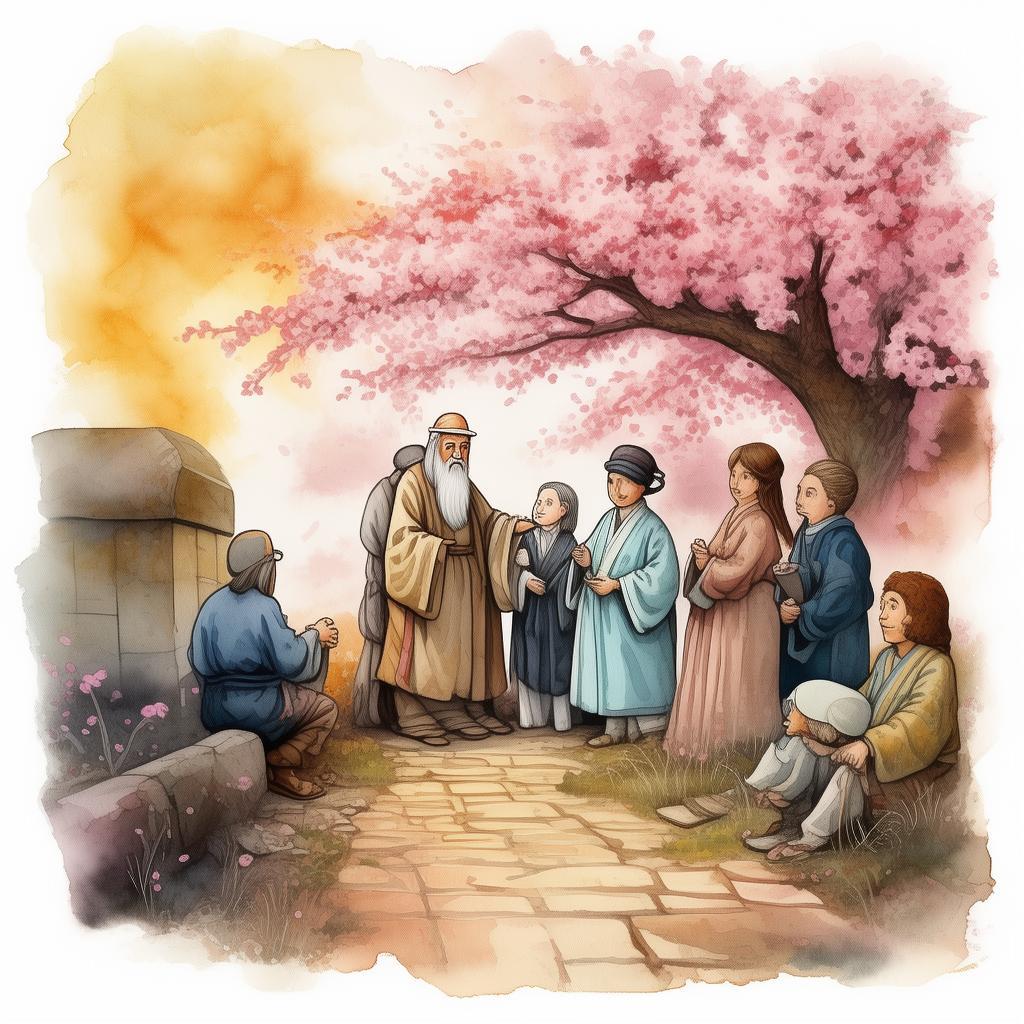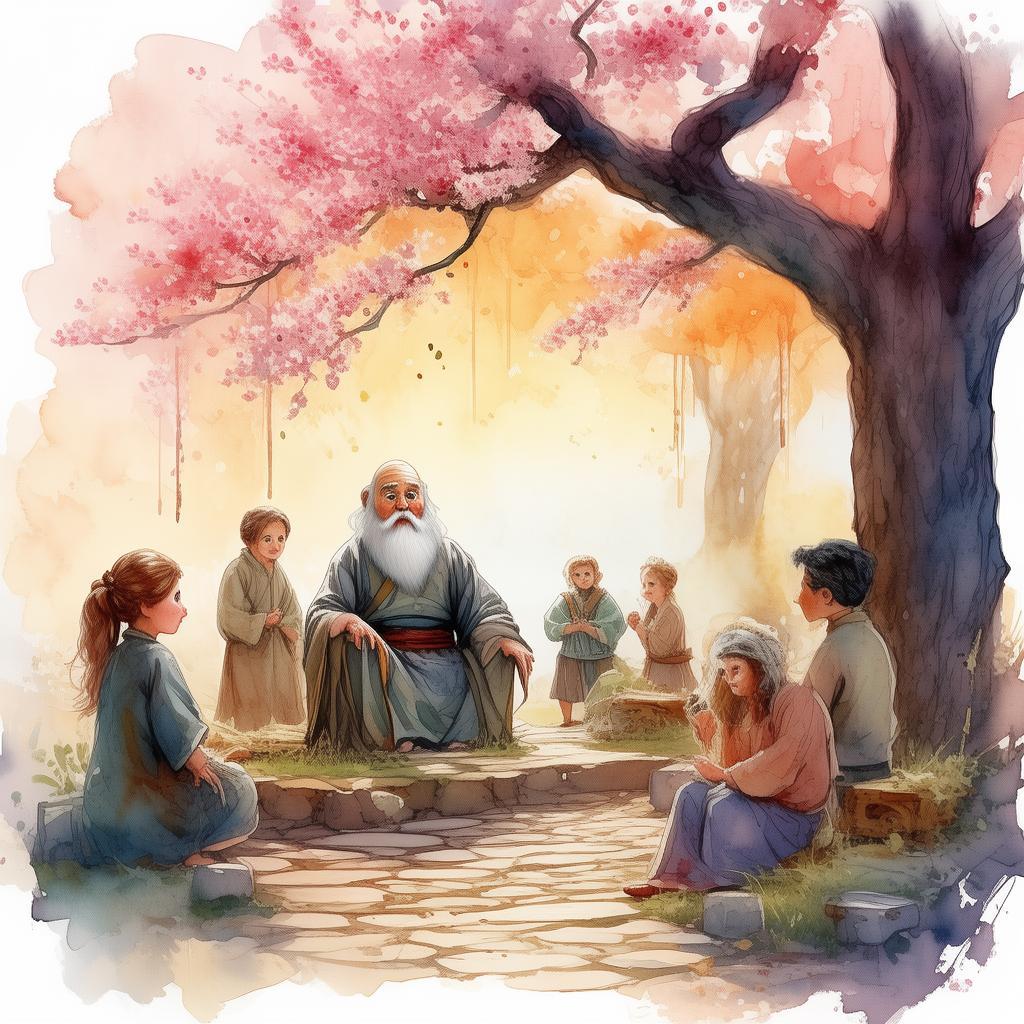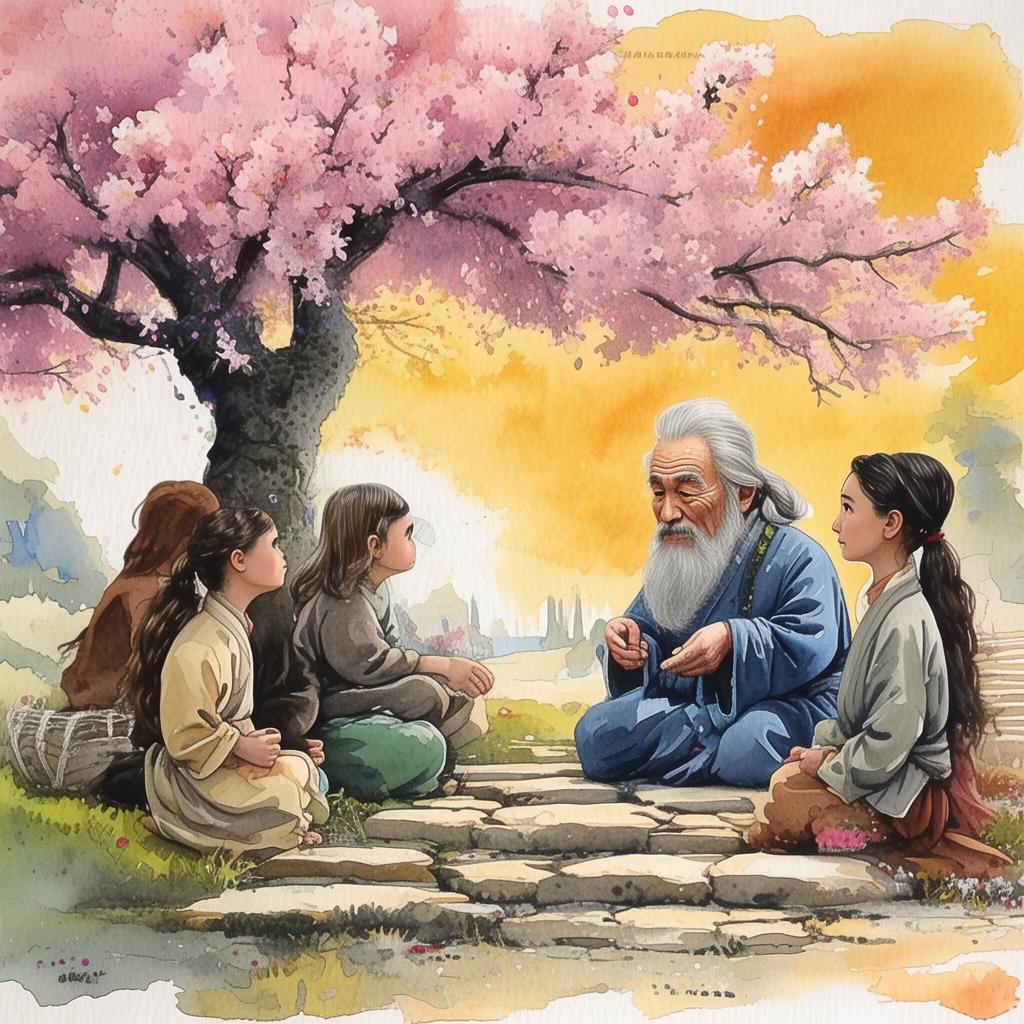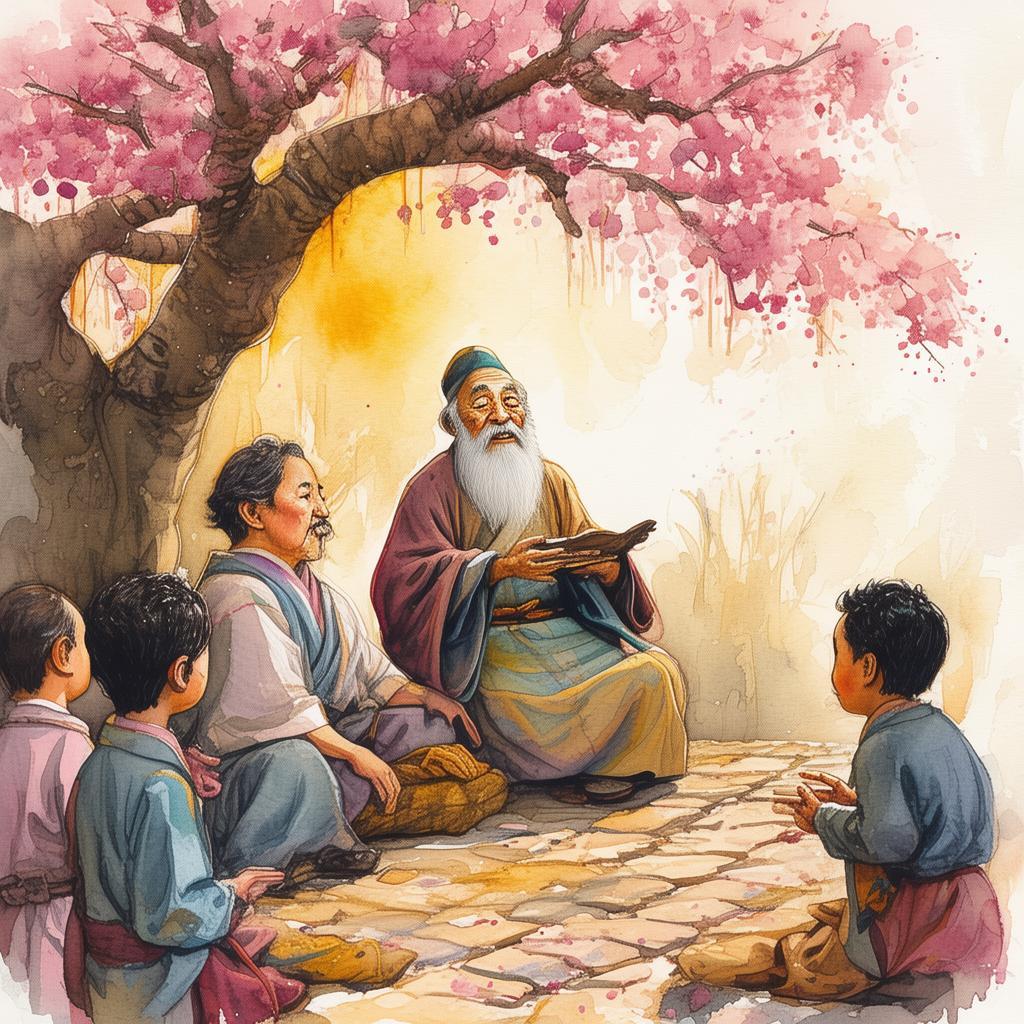Whispers of the Zen Path: The Monk's Reckoning
The Zen of the Ancient Path was a whispered legend among the monasteries of the Wuxia realm. It spoke of a monk who walked the treacherous path of enlightenment, facing trials that tested his resolve, his martial prowess, and his very essence of being. This monk was known as Chuan, a warrior monk whose heart was as steadfast as his Zen was profound. The tale of his journey was to be a testament to the power of the mind over the sword, and of the soul's unyielding strength.
In the tranquil village of Feng Lin, nestled amidst the misty peaks of the Southern Mountains, Chuan resided in the ancient temple of the Zen Path. The temple was a sanctuary for those seeking the higher truths of the world, a place where the martial arts met the meditative spirit. Chuan's life was a series of disciplined days, each filled with rigorous training, meditation, and contemplation.
The legend of the Zen Path spoke of a moment of reckoning, a time when the path of the monk was tested by the very essence of his existence. This reckoning was not to be a physical battle, but a spiritual confrontation with the darkest parts of the monk's own mind. It was said that only the purest of hearts could pass through this trial, and that those who failed would be consumed by the shadows that lay within.
As the days grew shorter, and the winter snows began to fall, Chuan felt the weight of the reckoning upon his shoulders. He was approached by an old monk, the keeper of the temple's most sacred texts, who spoke of a prophecy that foretold the arrival of a great evil. This evil was to be a test of the monk's resolve, a trial that would require not just his martial skills, but his Zen discipline.
The old monk handed Chuan a scroll, its ancient script crackling with energy. "This scroll holds the secret of the Zen Path's reckoning," he said. "Only through its wisdom can you hope to survive the trial."
Chuan's journey began in the heart of the temple, where he was tasked with facing the five elements of nature—fire, water, earth, air, and spirit. Each element represented a different challenge to his Zen and his martial arts, a test of balance and harmony. He faced the flames with calmness, the water with tranquility, the earth with steadfastness, the air with clarity, and the spirit with purity.
The trials were not just physical, but mental. In the realm of fire, Chuan was confronted with his own fears and insecurities, his heart racing with the heat of doubt. The water element tested his patience, the earth his resolve, the air his focus, and the spirit his very essence.
As he progressed through the trials, Chuan's mind grew clearer, his senses sharper, and his spirit stronger. He began to see the interconnectedness of all things, the unity of the martial and the meditative paths. His movements became like the flowing river, his stance like the solid mountain, his breath like the gentle wind, and his presence like the boundless sky.
Yet, as he neared the end of his trials, the reckoning itself revealed itself in a most unexpected form. It was not an external enemy, but an internal demon—a shadow that had been growing in his mind, nurtured by the stress and pressure of his journey.
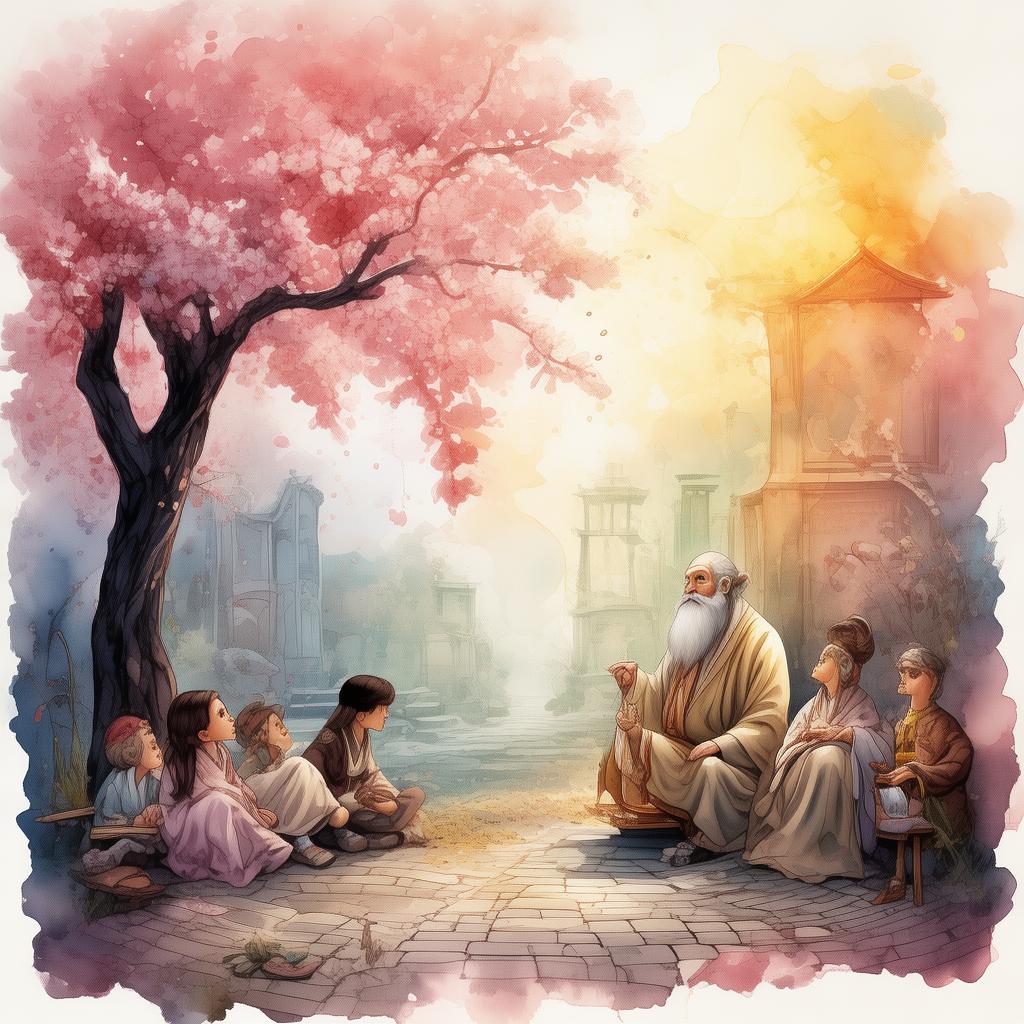
In the final trial, Chuan was taken to the heart of the temple, where a large, ancient tree stood. This tree was said to be the root of the Zen Path, the very essence of the temple's power. It was here that the shadow of his past, his regrets, and his insecurities confronted him.
The shadow spoke in a voice that was his own, yet twisted and corrupted. "You are not worthy of the Zen Path," it whispered. "You are a fraud, a pretender to the ancient wisdom."
Chuan stood firm, his Zen unbroken. "I have faced the elements, I have faced my own fears, and I have faced the trials of the mind," he replied. "I am worthy."
With a calm that defied the storm of his inner turmoil, Chuan reached out and touched the tree. The energy of the temple flowed through him, purifying his being, and eradicating the shadow. The tree's ancient bark split open, revealing a hidden chamber within.
Inside the chamber lay the final test—a mirror, reflecting not just Chuan's image, but the essence of his being. He saw the monk he was, the warrior he had become, and the Zen master he was meant to be. The mirror was a reflection of his soul, and within it, he found his true self.
In that moment of revelation, Chuan understood the Zen of the Ancient Path. It was not about strength or skill, but about the harmony between the mind and the spirit. It was about facing the innermost fears and emerging stronger, purer, and more enlightened.
With the reckoning behind him, Chuan returned to the village of Feng Lin, his path illuminated by the wisdom of the Zen Path. He continued his journey, teaching others the way of the mind, the way of the spirit, and the way of the Zen.
And so, the tale of Chuan and the Zen of the Ancient Path was told, a testament to the power of the mind over the sword, and of the soul's unyielding strength. It was a story that would live on in the hearts of all who heard it, a story of a monk who faced the reckoning and emerged triumphant.
✨ Original Statement ✨
All articles published on this website (including but not limited to text, images, videos, and other content) are original or authorized for reposting and are protected by relevant laws. Without the explicit written permission of this website, no individual or organization may copy, modify, repost, or use the content for commercial purposes.
If you need to quote or cooperate, please contact this site for authorization. We reserve the right to pursue legal responsibility for any unauthorized use.
Hereby declared.
